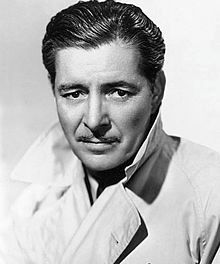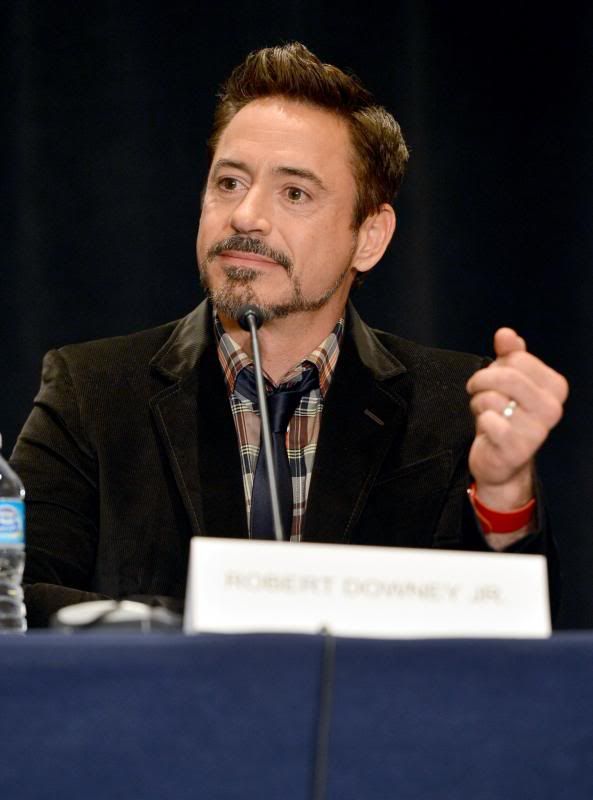When I was fourteen and in love with Ronald Colman
A long time ago, my mother told me a story about my grandmother. My memory of it is very incomplete, containing only the following three fragments:
1. The story begins When I was fourteen and in love with Ronald Colman . . .
2. The story involves the movie The Prisoner of Zenda (released in September of 1937--when my grandmother was indeed 14)
3. The story ends with enormous admiration for a character (played, I always assumed, by Ronald Colman) whose final appearance involves a pithy farewell right before jumping out a window.
A few nights ago, Mr. Philena and I finally watched this movie, which is really quite good.* It did star Ronald Colman** but the fellow who jumped out the window was not our Colmanic hero, but rather the villain, who jumps out the window to make a swashbuckling exit, escaping retribution for his evil plans. And, with that, I believe I can fill in the blanks of this half-remembered story. It was not a tale of teenage idol-worship. Rather, it describes the moment when my grandmother discovered the Magnificent Bastard, and as I've grown older, I've come to admire magnificent bastardy much more than I did as a child. As a seven-year-old, I could not understand why my mother liked Ursula in The Little Mermaid. Didn't she realize that Ursula was the bad guy? As a ten-year-old, I was much more attracted to the clean red-and-white colors of the Starfleet uniforms than to the barbaric rags worn by Khan's crew in The Wrath of Khan, which were of course preferred by my mother. As a thirteen-year-old, I considered Darth Vader simply the bad guy, and sat through his scenes patiently, waiting for the narrative to switch back to the heroes. I was much, much older than fourteen before I realized that villains can be awesome, and as a result of this ignorance, an enormously formative part of my childhood, I now realize, was incomplete. I refer, of course, to Star Trek.
For those who do not know, aside from the Star Trek movies, there have also been a large number of TV series. First was classic Trek, the one with Kirk and Spock, and which lasted a bare three seasons before being canceled. Yet that was enough to start the rock down the hillside, and it was followed after about twenty years by Next Generation, Deep Space Nine, Voyager, and, finally and less successfully, Enterprise. Starting from about the age of 10, I worked my way through most of the series, either on tape for the older ones, or on broadcast for the newer ones. What I did not watch, however, was Deep Space Nine, because for a long time I had firmly classified it as the not-as-good series, the one that no one really liked that much. It's too dark, I thought. It's depressing, I thought. It's boring, I thought. Boy, was I wrong. DS9 is vastly superior to Enterprise (as is everything, really), Voyager, and early Next Gen. DS9 is the darker and edgier cousin to the Star Trek franchise. Its profusion of moral ambiguities and snake-necked villains did not appeal to 14-year-old Philena (although it may have appealed to her 14-year-old grandmother), but now that I've returned to it as an adult, it is truly magnificent, both with respect to its individual characters, and also the larger diplomatic and political machinations.
Let us start with characters, and in particular, Gul Dukat. Gul Dukat, played brilliantly by Marc Alaimo, is an official in the Cardassian Union, the Federation's primary local antagonist in DS9. He is capable, charming, and ruthless, but he is not evil. He is fiercely loyal to Cardassia, risking his life to wage an independent war against a threatening power that Cardassia is unwilling to engage. Yet he loves his half-Bajoran daughter so dearly that he accepts humiliation and exile from Cardassia by acknowledging her. When he is in charge of a Cardassian-occupied planet and fighting against a counter-occupancy insurgency, he tries to limit the amount of bloodshed to something that will discourage further violence without killing too many people. He recognizes and admires the virtues of the Federation commander of DS9, and saves (or perhaps simply spares) his life at least twice because of this admiration. None of this means, however, that he is a good guy. His idea of limiting bloodshed involves execution of 200 civilians in response to an insurgent attack that killed 200 of his soldiers, and he later says that this restraint was tactical; he himself would have preferred to kill all the natives of that planet. His loyalty to Cardassia means that he is instrumental in welcoming a dangerous and powerful civilization into the Alpha Quadrant, because, although it will eventually lead to enslavement and destruction of most of civilization, it will be good for Cardassia. His love for his daughter eventually drives him mad in interesting ways*** and from that moment on everything else he does is unbalanced and unpredictable, and works as a catalyst for further plot developments that could not otherwise be justified.
Few (villains or otherwise) can compete with Dukat in magnificence, but there are still plenty of other excellent characters. Garak, the ex-Cardassian-spy-turned-tailor, is quite a lot of fun (and often ranked even or ahead of Dukat). The mysteriousness of his mysterious background and mysteriously acquired abilities is perhaps a little forced, but Andrew Robinson plays him quite well, and has a terrific genial, enigmatic smile. Weyoun is a great combination of a powerful, almost literally unkillable**** face of the invading conquerors, while simultaneously being a bit of a whiny bureaucrat who gets on the nerves of the actual military personal who have to deal with him. The good guys are not as remarkable, I think, but late-series Sisko (with the beard and without the hair) is very strong, in particular because he is not the blindly do-the-right-thing Ken doll that most Star Trek characters are (or are at least portrayed to be). The episode In the Pale Moonlight is described on the Internet as a hugely dividing episode, because half the fans were outraged at the morally wrong but necessary actions Sisko must take (utterly antithetical to the sparkling future envisioned by Gene Roddenberry), while the other half (in which I firmly stand) are delighted that the Star Trek universe takes on a much more realistic view of the world.
Finally, there are the political machinations between the individual powers--primarily, the Federation, the Cardassians, the Romulans, the Klingons, and the Dominion. Everyone is constantly all over the place, forming alliances, going to war, creating treaties from season to season and episode to episode, and yet everything makes sense. At the beginning of the series there is a fairly comfortable, stable equilibrium in the Alpha Quadrant. Klingons are allied with the Federation, the Federation has a reasonably stable truce with the Cardassians and the Romulans, and the Dominion is off in the Gamma Quadrant, where no one here has heard of them, and they haven't heard of us, and all is good. And then the Dominion learns of the Alpha Quadrant, and everything explodes! The Dominion quietly devastates the Cardassians through infiltrators and spies, the Klingons get anxious that the Cardassians are now in power of the Dominion, and so attack them, starting a war. The Federation helps the Cardassians, thus dissolving the Federation/Klingon alliance, and creating a Federation/Cardassian one. Then the Cardassians join the Dominion for protection (since it's been destroyed even more by the Klingon war), the Klingons rejoin the Federation to continue fighting the Dominion. The Romulans first join the Cardassians to fight against the Dominion. That doesn't go well, so they try to stay neutral, until Sisko manipulates them to join the Federation. And so on. These events could have easily become a set of random, war-of-the-week plot twists, yet they don't: every single change in alliance makes sense. The entire power balance of the Alpha Quadrant changed with the appearance of the Dominion, and it can't right itself until the Dominion is either destroyed or triumphant. But rather than simply banding together and throwing out the Dominion, each power is thinking in terms of its own good, rather than the fate of the entire Alpha Quadrant, so they play out these unbalanced, petty squabbles while the Dominion comes closer and closer to its objectives. It's brilliant story-telling.
I have not yet watched the end of the 7th season of DS9. In part it's because I've been enormously busy, but in part it's also because I don't want to finish it. It was a wonderful surprise to discover that this previously-neglected part of my childhood is so brilliant, but when I'm done, I'm done. There won't be any more Star Trek. Enterprise is no good, and I've seen all the Classic, Next Gen, and Voyager episodes, as well as the movies. When I've finished DS9, it will be over. And I don't want it to be over.
*I mention in passing that it contains a very young David Niven, who has come to my adult notice by being pretty much the only good thing about the old film adaptation of Around the World in Eighty Days. In Prisoner of Zenda he was only 27, according to Wikipedia, and already he had those dramatic forehead creases.
**Who looks remarkably like Robert Downey Jr. I am not so great with faces so the resemblance might be carried entirely by the mustache. At any rate, I leave it to you to judge:
Ronald Colman (image from Wikipedia): Robert Downey Jr (image from IMDB):


***The episode Waltz is one of the finest things ever produced in the Star Trek franchise, but it doesn't really work unless you've watched everything else leading up to it. Its success depends on the shared frame of reference that has been built up throughout the previous episodes and seasons.
****They do clever things with clones
This entry was originally posted at my dreamwidth site, which I will be using as my primary journal rather than livejournal. Crossposting will continue until morale improves.